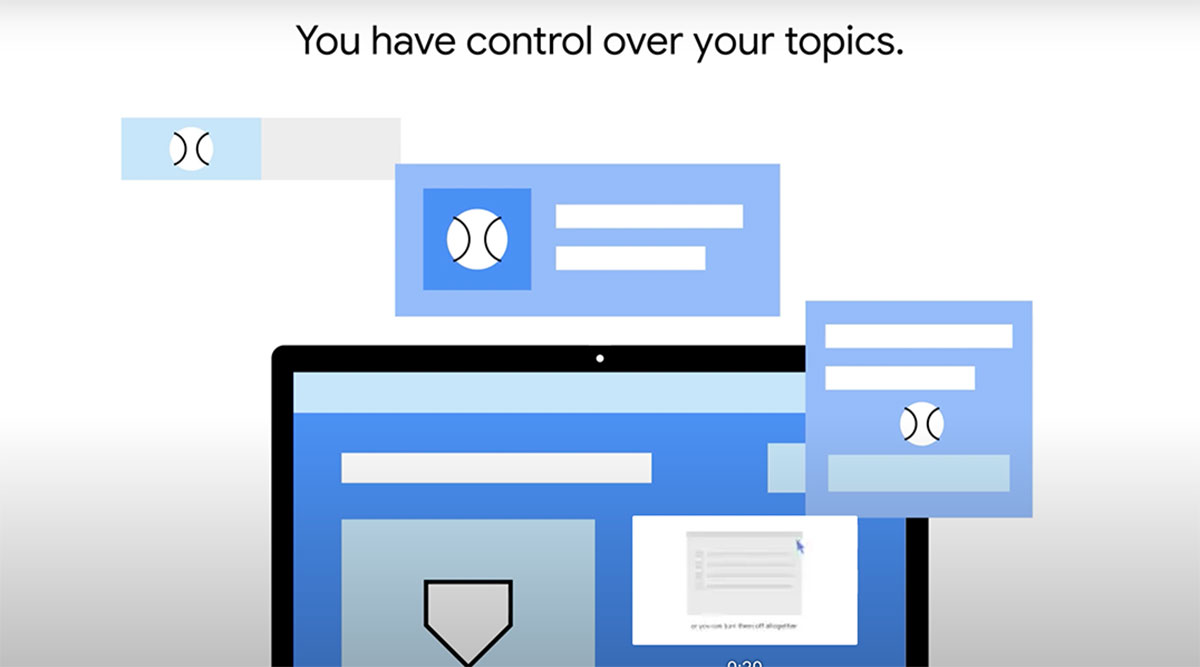 Google will introduce 'Topics' as a new way of serving ads on the Chrome browser. (Image source: Google)
Google will introduce 'Topics' as a new way of serving ads on the Chrome browser. (Image source: Google) Google will soon test out a new Topics API in a developer version of Chrome as it tries to build a ‘more private’ browsing online. It claims this new method will help serve ads better without negatively impacting advertising business for publishers, creators and other developers. The move is crucial given Google Chrome browser will soon do away with third-party cookies, a move it originally announced in January 2021. This phase-out is supposed to take place by mid-2023 and get completed by the end of the year.
In a new blog post, Vinay Goel, Product Director, Chrome has said that the company plans to launch “a developer trial of Topics in Chrome that includes user controls, and enables website developers and the ads industry to try it out.” However, the final design of user controls and other technical aspects will depend on user feedback and what Google learns during the trial phase.
The Topics API is part of its ‘Privacy Sandbox’ initiative, which is Google’s effort at building a more private web browsing experience. It had earlier announced plans for a ‘FloC’ proposal to replace cookies. FLoC which stands for Federated Learning of Cohorts. But it looks like Topics is the solution that Google will settle on for now.
So what exactly is Topics?
The Topics API will determine a handful of topics that a user is interested in and this is the data that will be available with the browser. Instead of third-party cookies which track each and every website that a user visits, Topics will not do the same. Rather they will focus on the user’s topics of interest. This is what will be tracked and then shared with third-party websites to determine what ads might be shown to a user.
The topics could range from “Fitness” to “Travel & Transportation.” The topics are decided based on the user’s browsing history. The browser determines the topics associated with websites. For example, a yoga-themed website might be classified as being related to “Fitness”.
These topics are assigned to the websites themselves, not the user. When one visits a participating site, one topic from each of the past three weeks will be shared with the site and its advertising partners. Topics for each browser are only stored for a period of three weeks and older topics are deleted. Further, they are selected entirely on the user’s device without involving any external servers, including Google servers.
According to Google, Topics could be an easier way for browsers to show relevant ads to users without compromising on transparency. Further, Chrome will have user controls that will let one see the topics, remove any they don’t like or disable the feature completely.
Topics will exclude sensitive categories, such as gender, sexuality, or race. Google claims that because Topics will be powered by the browser, it provides users with” a more recognisable way to see and control how data is shared, compared to tracking mechanisms like third-party cookies.” So once Topics does get implemented, websites won’t know which other sites were visited by a user.
Google also adds it is hoping that providing online businesses with topics, it will ensure that they “do not rely on covert tracking techniques, like browser fingerprinting, in order to continue serving relevant ads.”
The technology is still in the early stages of development. “The results of the trials and feedback from the web community will inform the timeline,” the company added. So whether this actually rolls out to the public or not will only be known in sometime.
- The Indian Express website has been rated GREEN for its credibility and trustworthiness by Newsguard, a global service that rates news sources for their journalistic standards.

